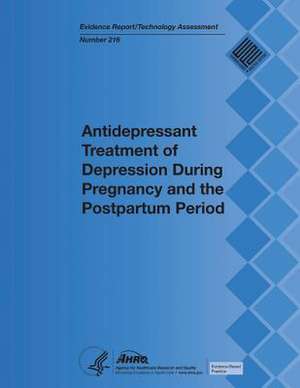Antidepressant Treatment of Depression During Pregnancy and the Postpartum Period
Autor Agency for Healthcare Resea And Quality, U. S. Department of Heal Human Servicesen Limba Engleză Paperback
Preț: 177.36 lei
Preț vechi: 186.69 lei
-5% Nou
Puncte Express: 266
Preț estimativ în valută:
33.95€ • 36.89$ • 28.54£
33.95€ • 36.89$ • 28.54£
Carte disponibilă
Livrare economică 31 martie-14 aprilie
Preluare comenzi: 021 569.72.76
Specificații
ISBN-13: 9781505812015
ISBN-10: 1505812011
Pagini: 308
Dimensiuni: 216 x 279 x 17 mm
Greutate: 0.72 kg
Editura: CREATESPACE
ISBN-10: 1505812011
Pagini: 308
Dimensiuni: 216 x 279 x 17 mm
Greutate: 0.72 kg
Editura: CREATESPACE
